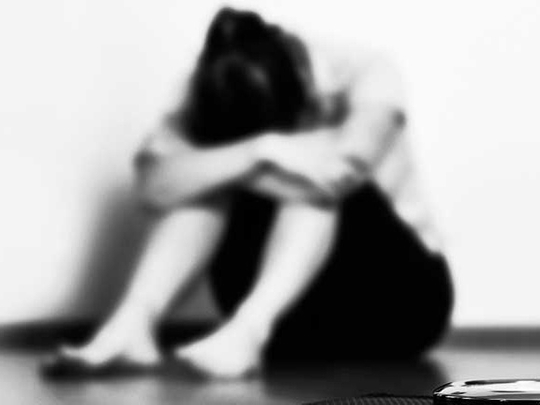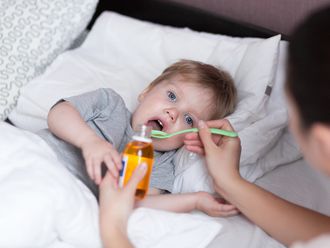
Hi Doctor,
Hope you are well.
I am 31-years old. Currently unemployed, but have enough bank balance. I mostly feel down all the time. Have been to a physician and a psychiatrist. Took medicine, but still no visible signs of recovery. I have joined a gym as well and started writing just to keep myself distracted. I feel I am deviated from normal life and lost my way back. My depression seems shadowing my life. Kindly help me.
Thanking you in anticipation. Best regards, Anonymous
Answered by Dr Sreekumar V. Nair, MBBS, M.D. Psychiatry, NMC Specialist Hospital, Dubai.
Dear friend,
I can understand how you must be feeling. You have mentioned that you are feeling low most of the time and that you have consulted a physician and a psychiatrist. You have also taken medication and started exercising , but with not much improvement. It would have been easier for me to help you better if I had more information.
Nevertheless, since you are feeling low most of the time, let’s assume that you are having Clinical Depression. Let me describe what Clinical Depression is. Probably you will be able to identify your problem and help yourself or seek help.
What is Clinical Depression?
Depression is a common medical illness, which negatively affects the way we think, feel and act. Everything looks negative, ourselves, our surroundings, the past, the present, the future, etc.
It leads to a variety of problems, emotional and physical. It affects our functioning at work, home and in our social life.
• Inability to enjoy activities once enjoyed Loss of interest in activities
• Lack of energy or increased fatigue Reduced or increased appetite
• Disturbed sleep or excessive sleep Feeling worthless, helpless, hopeless etc
• Increase in purposeless physical activity (pacing, hand wringing etc), restlessness
• Slowness of activity and speech
• Avoiding social interaction
• Difficulty in thinking , concentrating, making decisions etc
• Thoughts of death and suicide
All these symptoms need not be there to make a diagnosis of depression. At least two of the first four and few of the others is enough. The symptoms should be present continuously for two weeks.
About one in six people (16%) will have depression in their lifetime. In women it can be one third (30%). Though it can happen at any age, it mostly starts during late teens to mid-twenties. Depression can affect anyone, even someone who seem to have no issues.
The factors which contribute to depression are biological, psychological and social in nature
Genetic: The vulnerability to have depression can be inherited. Much like in Diabetes. If other factors fit in, then the person ends up having depression.
Neurochemistry: The imbalance of certain neurochemicals in the brain contribute to the symptoms of depression.
Psychological factors or personality: People with low self-esteem and confidence, who are easily affected by stress, who generally think negative, are more likely to get depression.
Social or environmental factors: Continuous exposure to abuse, violence, stressful situation anywhere, etc make some people more vulnerable to depression.
Some medical conditions (eg: Thyroid problems, Vitamin deficiencies, Parkinson’s disease etc) can mimic symptoms of depression or lead to depression.
Depression is different from sadness
Sadness is normal in someone going through a difficult time like loss of a loved one, loss of job, failed or strained relationship, extreme pressure at work etc. sadness is a part of depression, but they are different in some ways.
In sadness and grief, the painful emotions come in waves, there will be periods of positive emotions also. Whereas in depression it is constant and all pervasive.
The continuous feeling of worthlessness, helplessness, hopelessness will not be there in sadness.
How do we treat depression?
Depression is one of the most treatable mental illnesses. About 80 to 90% patients recover with proper treatment.
Medication, psychotherapy, lifestyle modification including exercises are the different methods of treatment. Each one alone or in combination can be useful.
1. Lifestyle changes
Doing regular cardio exercises brings about release of endorphine in the body and makes one physically fit and energetic and this makes the mind positive.
Deep breathing exercises helps in reducing the heart rate, blood pressure and stress hormone level, thus making one relax.
Healthy diet, adequate sleep, adequate exposure to sunlight etc also helps.
Adequate social activity is another factor that helps.
Prayer, meditation, relaxation exercises are also important.
2. Psychotherapy
Psychotherapy or talk therapy is found to be very useful. Cognitive behavior therapy (CBT) is particularly useful in treating depression. The patient learns to identify the distorted thoughts and modify the behavior and thinking. It enables the patient to cope with the negativity and difficult situations.
3. Medication
The above methods alone might be enough to treat mild depression. In moderate to severe depression, the use of medication along with the above may be needed.
Antidepressants are the main medication used. Current day antidepressants are safe, these are not habit forming and are generally non-sedating.
Usually they take about two weeks to have some effect and it might take about 6 to 8 weeks to have adequate relief.
It is important to note that the medications have to be taken in the proper Dose and for the proper Duration , for it to be effective. There are specific duration , tailored for each patient, following which the medication can be stopped.
4. Other modalities of treatment like Elector convulsive therapy (ECT) is very useful in very severe illness, suicidal patients etc. Unlike the public perception, ECT is very safe and very effective treatment. It is done under general anesthesia and the patient does not move at all.
Now coming back to you, my friend. In your case your symptoms and severity of symptoms, onset and duration of illness, medication and their dose, duration etc are not available.
So, after going through the above, if you feel you are depressed, then seek help again.
Even if you feel that you are not having clinical depression, I would advice you to go to your psychiatrist and discuss your problems.
Making the lifestyle changes mentioned above will help you very much.
If you have questions that you would like answered by a mental health professional in the UAE, please write in to readers@gulfnews.com. Also, please let us know if you'd rather stay anonymous.
Disclaimer: This blog is a conversation and is not an alternative for treatment. The recommendations and suggestions offered by our panel of doctors are their own and Gulf News will not take any responsibility for the advice they provide.









